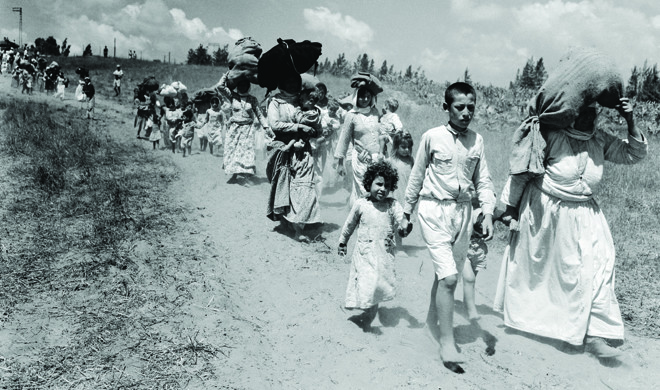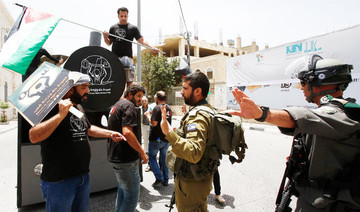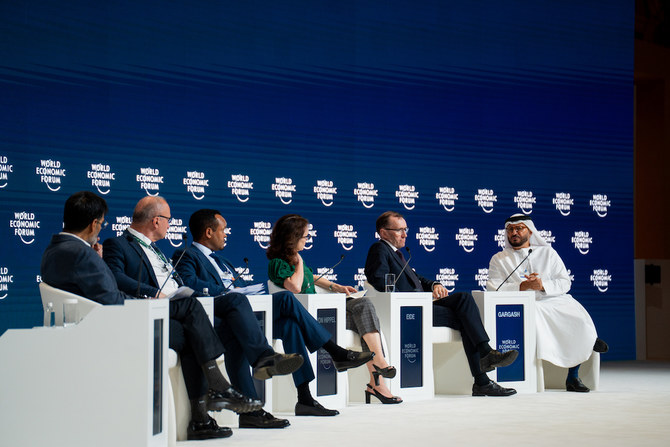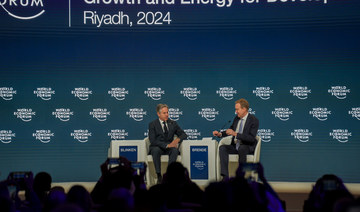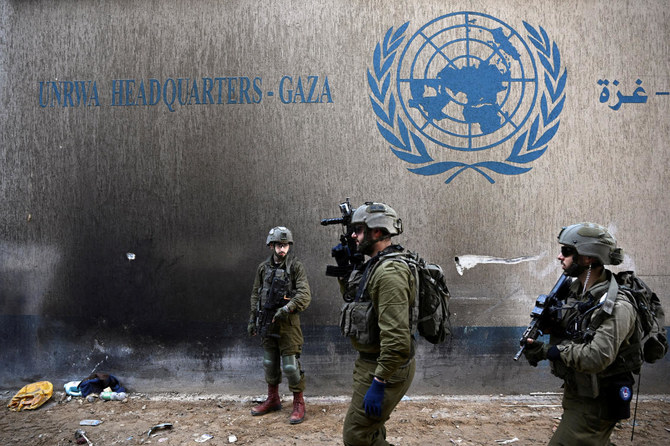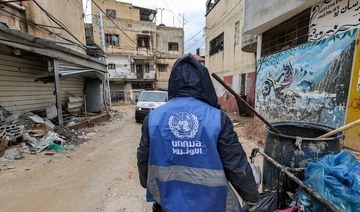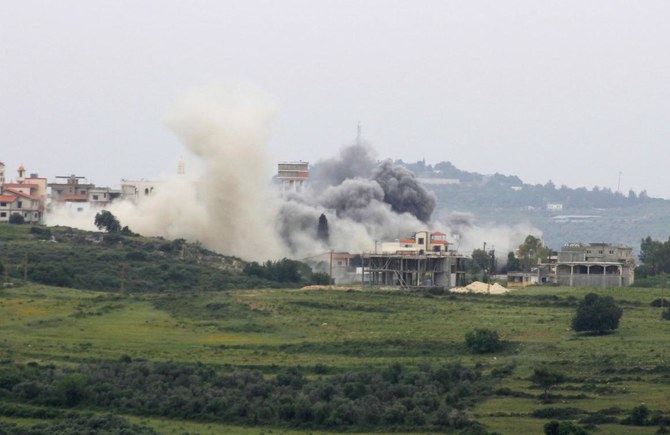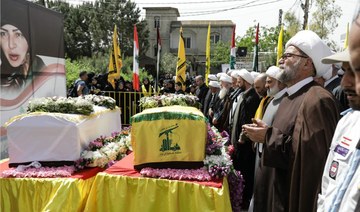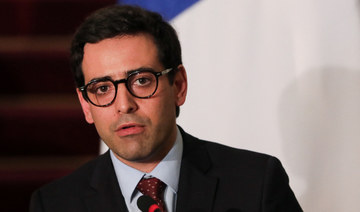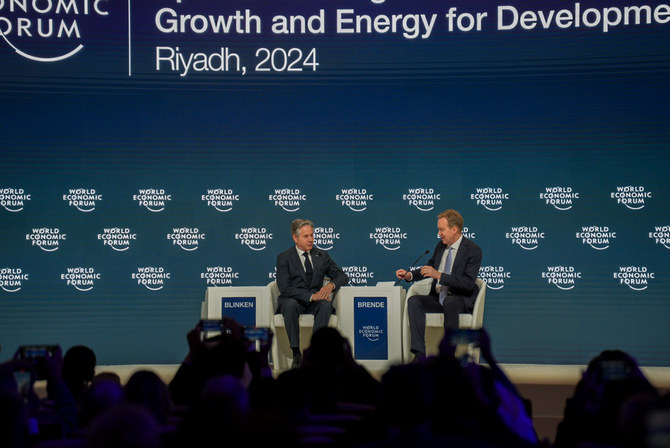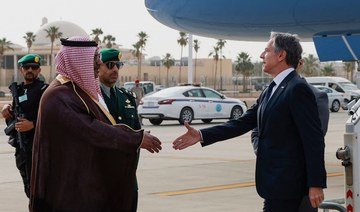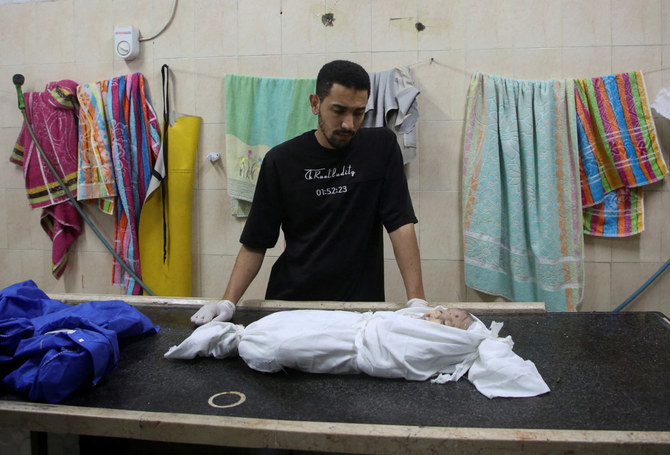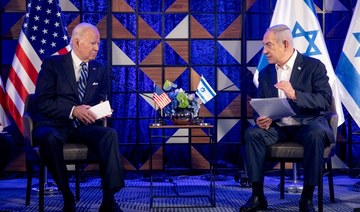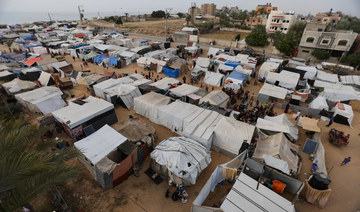RAMALLAH: The Palestinian refugee crisis began before May 15, 1948, when Israel declared itself a state on Palestinian land and began barring those who had left their homes from returning.
In many cases the new Jewish immigrants took over the homes and lands of the refugees who had temporarily left because of the violence perpetuated by underground Jewish militias.
The Zionist narrative was primarily focused on the false claims that Palestine is a “land without a people for a people without a land.”
In the process of colonization and settlement by Jewish immigrants, Palestinians were dispossessed and made stateless.
 The Palestinian refugee problem was taken up in Resolution 194, passed by the UN General Assembly in December 1948. It was also addressed in the Arab Peace Initiative introduced in 2002.
The Palestinian refugee problem was taken up in Resolution 194, passed by the UN General Assembly in December 1948. It was also addressed in the Arab Peace Initiative introduced in 2002.
Unlike various attempts by Israel and its apologists who insist the problem is insoluble, the Arab plan approaches the refugees’ case as something that can be accomplished by consensus rather than clashes.
The text on refugees in the Arab peace plan reads: “Achievement of a just solution to the Palestinian refugee problem to be agreed upon in accordance with UN General Assembly Resolution 194.”
Anis F. Kassim, a Palestinian lawyer based in Jordan and the editor of the Palestine Yearbook of International Law, told Arab News that the right of return enshrined in various UN resolutions is non-negotiable and does not have an expiry date.
The UN set up the Palestinian refugee agency, UNRWA, on Dec. 8, 1948, with a mandate to provide humanitarian, educational and health support to Palestinian refugees.
UNRWA now has nearly five million registered refugees in the West Bank, Gaza, Jordan, Syria and Lebanon.
Attempts to cancel Palestinian demands to return to their homes have at times been reflected in attempts to disband this humanitarian UN agency.
US President Donald Trump suspended financial support to UNRWA in January 2018, warning that the US may withhold future aid payments to the agency over what he called the Palestinians’ unwillingness to talk peace with Israel.
In trying to deal with the thorny issue of the right of return, Palestinian negotiators over the past decades have shown flexibility. Palestinian leaders have said that while this right is inalienable, its implementation is subject to negotiation.
Palestinian negotiators have said they want Israel to recognize its “legal and historic responsibility” for the refugee crisis.
Palestinian President Mahmoud Abbas went even further in 2012 when he said on Israeli TV that he no longer has any desire to live in the city in which he was born and raised, Safad, but would not mind visiting it. In February 2014 in Ramallah, he also told a group of 300 visiting Israelis that Palestinians are not interested in “flooding Israel with Palestinian refugees.”
Arab and Muslim countries have offered Israel a comprehensive peace plan that allows Israel a say in how the right of return is resolved.
This flexibility, however, is not universally accepted by Palestinians, and many have continued to oppose any compromise on the issue.
Suheil Khoury, a leading left-wing activist based in Amman, told Arab News that the Palestinian right of return is non-negotiable.
“This is a personal and a collective right and no one has the right to concede this right except the refugees themselves.” Khoury said that PLO factions such as the Popular Front for the Liberation of Palestine reject efforts by Fatah and other mainstream PLO factions that he feels take this sacred right lightly.
“The right of return is the main plank in the political programs of many Palestinian factions and many have paid the ultimate sacrifice upholding this right.”
The refugee problem is described by Israeli professor Ilan Pappe as “ethnic cleansing.” Unlike the expectations of many Israelis that new generations of Palestinians will forget about Palestine, the right of return continues to take center stage at Nakba Day activities and throughout the year. Generation after generation retain memories of Palestine.
Fakher Daas is a member of the politburo of The Popular Unity Party (Hizb al Wihdeh al Shaabi) in Jordan. He is also a member of the Return Committee, which organizes rallies and protests throughout Jordan.
“Right of return committees exist throughout Jordan and conduct regular events, protests and teach-ins to ensure that new generations of Arabs are aware of this right and its ramifications,” he told Arab News. Similar committees exist throughout the world.
The right of return has also been one of the main features of the Boycott, Divestment and Sanctions (BdS) movement. It calls for “respecting, protecting and promoting the rights of Palestinian refugees to return to their homes and properties as stipulated in UN resolution 194.”
The movement has published an article by Pappe and Karma Nabulsi fleshing out the issue.
“There is hardly a right that is more morally urgent and more legally compelling than the Palestinian right of return,” they wrote.
“Regardless of who they are, where they came from, or when they became homeless, refugees the world over have an inalienable right to return to their homes. They and their descendants retain that right until the moment of its translation into reality — when they are permitted to return, and can chose whether or not they wish to do so.”



